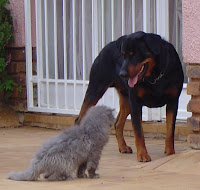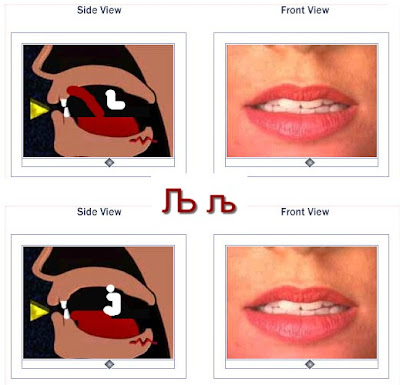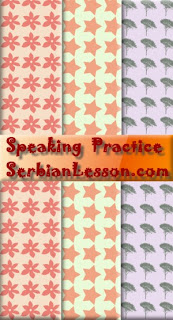If you liked the first part about how to describe people's age in Serbian, I'm sure you'll enjoy practising following features with the people & places video below:
- height and build (visina i građa):
- ... je prosečne visine = ... is average height.
- ... je visok = ... is tall.
- ... je nizak = ... is short.
- ... je debeo / punačak =... is fat / overweight
- ... je mršav = ... is thin
- ... je vitak = ... is slim
- hair (kosa):
- duga kosa: ... ima dugu kosu = ...has long hair
- kratka kosa: ... ima kratku kosu = ... has short hair
- kosa srednje dužine ... ima kosu srednje dužine = ... has medium-length hair
- crna kosa ... ima crnu kosu = ...has dark hair
- plava kosa ... ima plavu kosu = ... has fair hair
- crvena kosa ... ima crvenu kosu = ... has red/ginger hair
- (svetlo / tamno) smeđa kosa ... ima (svetlo /tamno ) smeđu kosu = ... has (light / dark) brown hair
- seda kosa ... ima sedu kosu = ... has gray hair
- kovrdžava kosa ... ima kovrdžavu kosu = ... has curly hair
- talasasta kosa ... ima talasastu kosu = ... has wavy hair
- ravna kosa ... ima ravnu kosu = ... has straight hair
- ... je ćelav = ... is bald
- ... je proćelav ... has a receding hairline.
- ...ima šiške (pluralia tantum) = ... has a fringe (in Serbian this word is always in plural, like "vrata"=door)
- ...nosi pletenice = ... is wearing her hair in plaits
- ...nosi kikice = ... is wearing her hair in pig-tails
- ...nosi rep = ... is wearing her hair in a pony-tail
- ...nosi puštenu kosu = ...is wearing her hair loose
- ...nosi razdeljak (na stranu / u sredini) = ... has a (side / centre) parting
- complexion (ten)
- ...ima taman ten = ...has a dark complexion
- ...ima svetlu put =...has a fair complexion
- ... je bled = ...is pale
- ... se sunčao = ... has a tanned complexion
- ...ima lep ten = ... has a clear /good complexion
- ...ima bubuljice /pege =...has spots / freckles.
- distinguishing features (karakteristične crte)
- ...ima bradu = ...has a beard
- ...ima brkove = ... has a moustache
- ...je izbrijan =...is clean-shaven
- ...ima ožiljak = ...has a scar
- ...ima tetovažu = ... has a tattoo
- ...ima guste obrve = ... has bushy eyebrows
- ...nosi naočare = ...wears glasses

.png)































